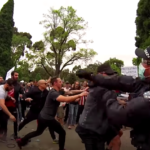Victoria Gives Overseas Arrivals the Right to Appeal Hotel Quarantine

The Victorian government is in the process of recruiting a team of experienced lawyers who will act as ‘detention review officers’, assessing applications for anyone wishing to avoid hotel quarantine.
Under revised legislation, the Secretary of the Health Department must send an application immediately to the detention review officers, who then decide whether detention is necessary, or refer the application to the Chief Health Officer who makes the final decision.
The new laws
The Public Health and Wellbeing Amendment (State of Emergency Extension) Act 2021 (Vic) will insert a new 200A into the state’s Public Health and Wellbeing Act 2008 that provides as follows:
(1) As soon as practicable after a person is made subject to detention under section 200(1)(a), the person must be provided with the following information in a form that the person is capable of understanding:
(a) the purpose of the detention and its terms;
(b) any exemptions that may be available to the person in respect of the detention;
(c) an explanation of the person’s rights and entitlements in relation to making a complaint or seeking a review of the decision to make the person subject to detention including, but not limited to:
(i) the process for making a complaint or seeking an exemption; and
(ii) the process for making an application for review under section 200B.
(2) Nothing in this section limits the requirements under this Act or any other Act in respect of information to be given to a person who is subject to detention under section 200(1)(a) including, but not limited to, the information required to be given to the person under section 200.
A new section 200B will be headed ‘Applications may be made for review of certain decisions in relation to a person subject to detention’ and read as follows:
(1) A person who is subject to detention under section 200(1)(a) may make an application to the Secretary for a review by a Detention Review Officer of:
(a) the decision under section 200(1)(a) to make the person subject to detention including, but not limited to, in respect of the following:
(i) the reasons for the detention;
(ii) the period of the detention;
(iii) the place of the detention;
(iv) the conditions of the detention; or
(b) a decision under section 200(1)(d) that relates to the person’s detention.
(2) An application under subsection (1) cannot be made in respect of a decision under section 200(6) that the continued detention of a person is reasonably necessary to eliminate or reduce a serious risk to public health.
(3) A person who is subject to detention under section 200(1)(a) and has made an application under subsection (1) may make further applications under subsection (1) in respect of that detention if:
(a) the most recent application made by the person has been determined; and
(b) since the most recent application was determined, new and materially different circumstances have arisen that affect the person in respect of the detention.
(4) An application under subsection (1):
(a) must be in writing; and
(b) must specify the grounds on which the application is made; and
(c) if the application is a further application of the kind permitted by subsection (3), must include a description of the new and materially different circumstances that have arisen and affect the person in respect of the detention; and
(d) must include any prescribed information; and
(e) may include any other information that the person making the application considers appropriate.
(5) The Secretary must ensure that an application made under subsection (1) is referred to a Detention Review Officer immediately after the application is made.
Review into Victoria’s hotel quarantine programme
The changes come on the back of a review led by Justice Jennifer Coate which heard evidence of nurses being under-trained and overwhelmed and sloppy hygiene infection control protocols. One family shared images via media of their hotel room on arrival which contained used PPE equipment and had blood stains on the sheets.
The inquiry found that a litany of errors in the original hotel quarantine programme led to Covid-19 finding its way into the community, sparking Victoria’s deadly second wave of Coronavirus last year and months of lockdowns across the state.
The hotel quarantine programme was shut down temporarily at the time.
It was shut down for a second time In mid-February after a new strain of COVID-19 leaked from a quarantine hotel, forcing the government to put the state into a 5-day lockdown and stop all overseas arrivals.
Addressing human rights
Human Rights advocate Daniel Webb said the introduction of review officers is a safeguard to ensure the extraordinary power to detain people was used fairly and reasonably, and contained avenues to raise individual circumstances and vulnerabilities.
This new process also addresses concerns that people were at risk of contracting coronavirus in hotel quarantine because of poor protocols and procedures and also in some cases, young children were unsupervised, having travelled without parents or guardians because flights into Australia from most destinations globally are difficult to obtain.
Who can receive an exemption?
The legislation also makes a provision for people detained in hotel quarantine to make more than one application if they can show that new and materially different circumstances have arisen in their own particular case.
This is an important measure for anyone suffering severe adverse mental and emotional distress at being detained in a hotel room 24 hours a day, for 14 days.
Exemptions can be applied for via the Victorian Health Department’s website, and can be granted for reasons including medical and compassionate grounds, for interstate travellers, foreign diplomats and maritime crew members. Unaccompanied minors can also apply.
Exemptions were available under the first round of quarantine, but only about 400 were granted by ‘authorised officers’ and only 56 of those were granted on medical or compassionate grounds. Most travellers were granted exemptions because they were in transit to another international or interstate destination.
Justice Jennifer Coate’s inquiry into the Victorian Hotel Quarantine programme found the original process for exemptions was neither clear nor consistent and recommended a transparent and prompt exemption process that included legal advice that took into account not only the public health considerations but also the human rights charter.







